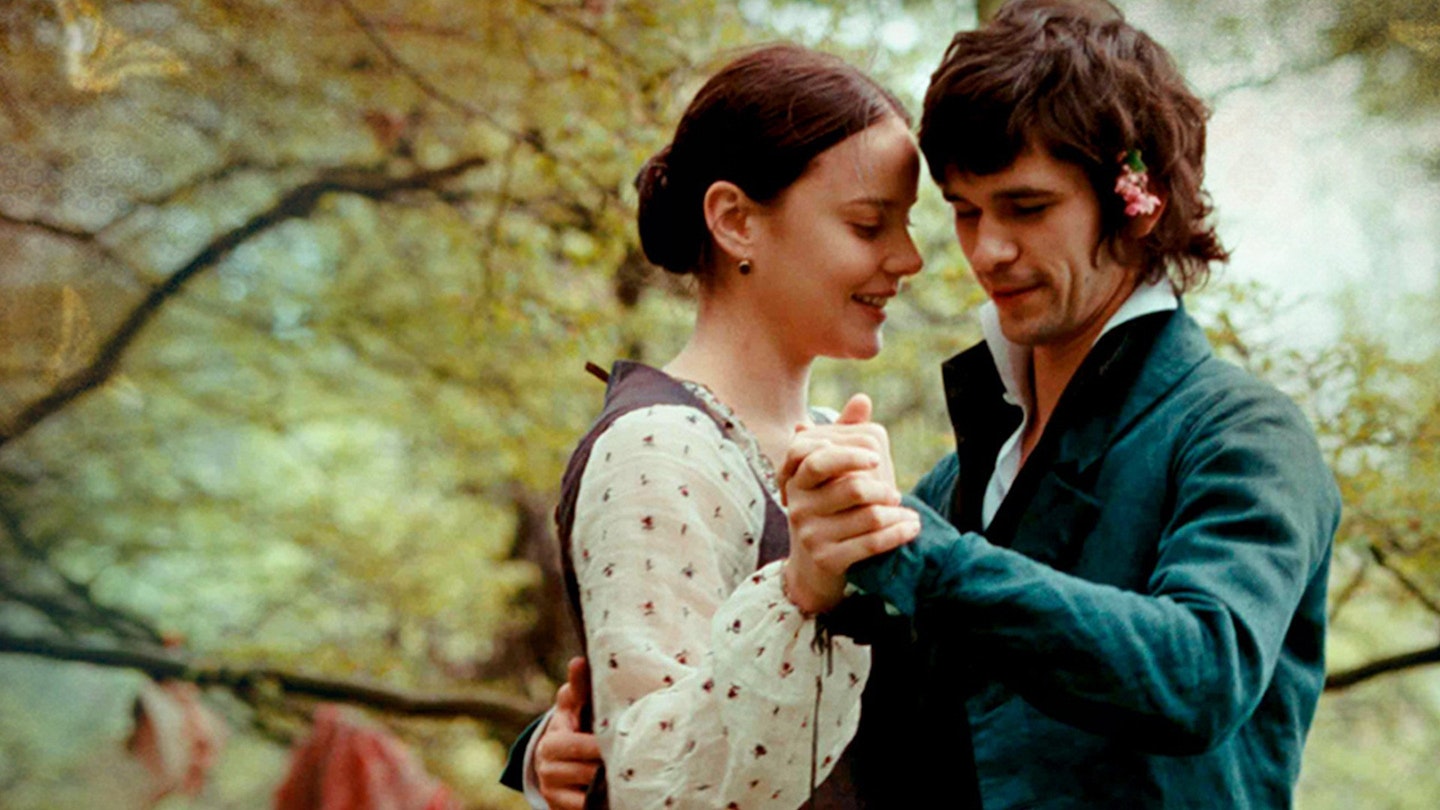Writer-director Jane Campion’s most famous film remains 1993’s Oscar-winning The Piano, the storyof a woman unable to speak, trapped in a silent world until an unlikely paramour unlocks her emotionally and erotically. In Bright Star, Campion takes as her subject John Keats (Ben Whishaw), one of the most famous wordsmiths of all time. Ostensibly her subjects couldn’t be more different. Yet for all his way with words, once again it takes an unlikely paramour — flirty, feisty seamstress Fanny Brawne (Abbie Cornish) — to lay bare the passion behind the poet.
Campion has taken as her focus the last two years of 23 year-old Keats’ life, as he teetered on the edge of literary fame. Lodging in London with the rambunctious Charles Brown (an excellent Paul Schneider), his buxom, rosy-cheeked neighbour, Fanny Brawne (Abbie Cornish), soon catches his (and Brown’s) eye, not least as she isn’t afraid to speak her mind over his poems. Or, indeed, anything. It’s a fun, familiar set-up, all too soon blighted by Keats’ obvious illness, our Romantic hero conspicuously succumbing to something nasty even as, thanks to Brawne, his life is filling with life and love. Campion seems to suggest that if sheer force of personality were enough, TB would be no match for Fanny.
This might be the turn of the 19th century, but Campion’s is no creaky costume drama — indeed, Fanny’s bosoms are barely restrained by her succession of self-designed frocks. There’s a wonderful lightness to the central pair’s relationship, Cornish all fun vivacity, Whishaw all pale skin, sharp angles and haunted eyes — he could give tips to Keats himself on how to look Keatsian — but nevertheless with an impishness around Fanny that gives welcome foil to his usual intensity.
Yet as another great poet once wrote, the course of true love never did run smooth. Just as this simple passion finds its voice, a different note begins to sound. Campion’s pacing is immaculate, and her mixing of light and shade is so subtly effective that, as the tale heads towards inevitable tragedy, it’s impossible not to be left both quietly devastated and thoroughly uplifted.

